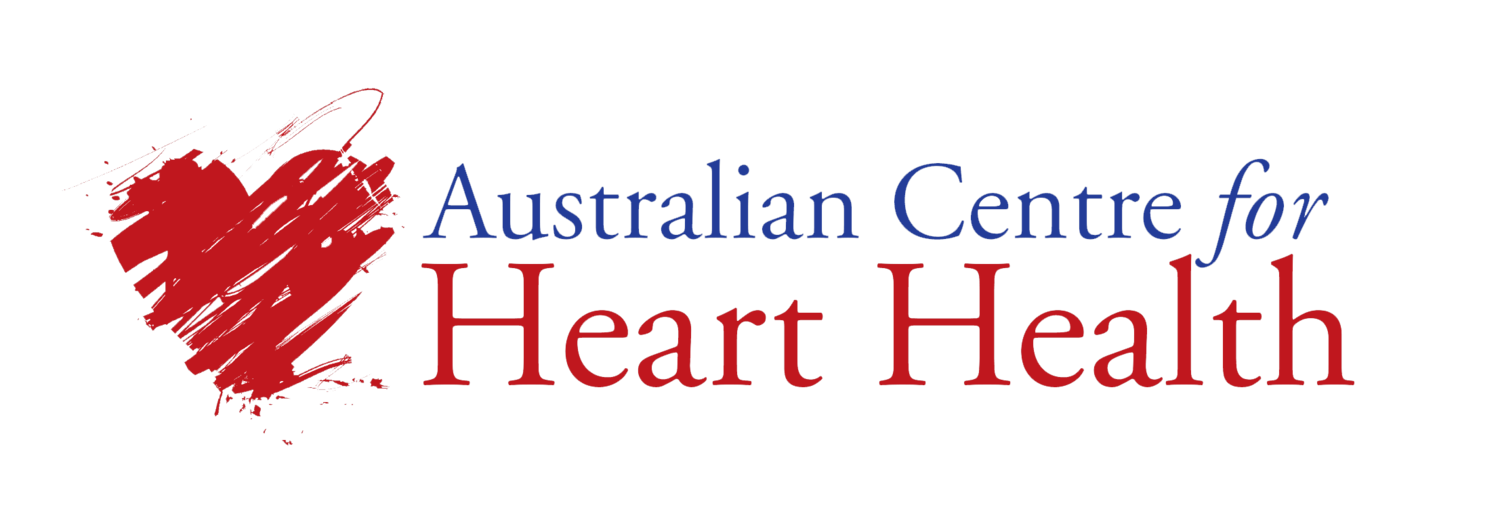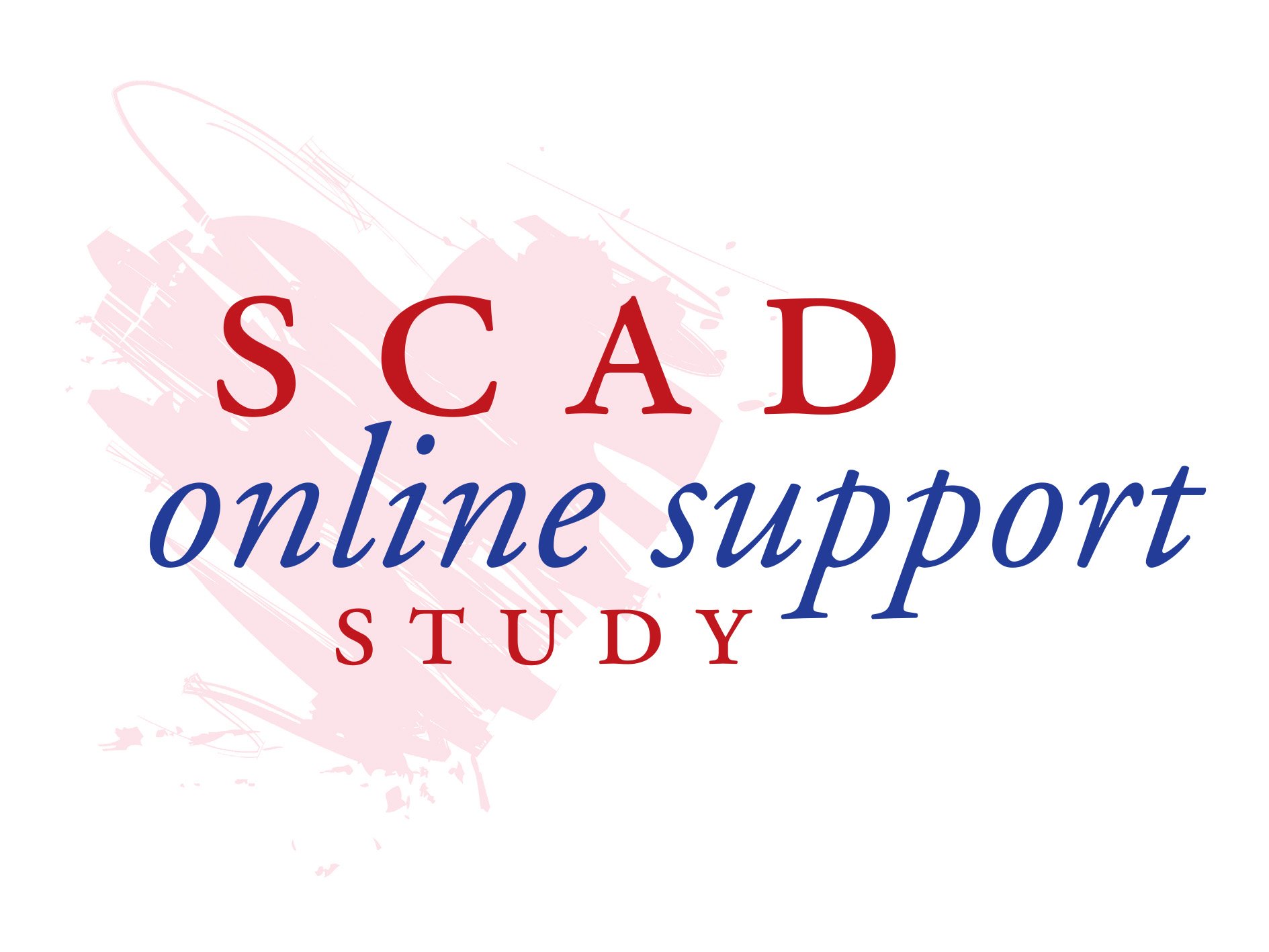SCAD Online Support Groups
SCAD Online Support Study: Developing and pilot-testing group support for SCAD survivors
In response to requests from SCAD survivors for group support, we have developed an online group support program.
The program was designed by our health psychologist, A/Prof Rosemary Higgins, who facilitates the group sessions with a co-facilitator who has lived experience of SCAD. The program follows the principles of Acceptance and Commitment Therapy (ACT), an evidence-based approach to support psychosocial wellbeing. The 4-week program involves 4 weekly sessions of 1.5 hours.
In 2023, we pilot tested our program with 30 SCAD survivors. We are currently preparing results of the pilot project for publication and conference presentation in 2024. This project was made possible through a National Heart Foundation Vanguard Grant. The project was also overseen by a Project Advisory Group comprising several members with lived experience of SCAD.
Currently, we do not have any dates for future SCAD online support groups. If you are interested in participating one of our programs, please submit your interest here and our team will let you know when dates become available.
SCAD Research
Spontaneous coronary artery dissection (SCAD) is an increasingly recognised cause of acute myocardial infarction (AMI). Despite increased understanding of SCAD in recent years, relatively little attention has been paid to the psychosocial consequences of the acute SCAD event. The aim of this project was to investigate the nature or prevalence of the specific concerns and stresses faced by SCAD survivors. This project involves two separate but interrelated studies.
Investigators
Dr Barbara Murphy, Dr Michelle Rogerson, Associate Professor Rosemary Higgins, Mr Michael Le Grande, Professor Alun Jackson, Australian Centre for Heart Health; Professor Robert Graham, Dr Siiri Iismaa, Dr Stephanie Hesselson, Victor Chang Cardiac Research Institute, Sydney; Ms Sarah Ford, SCAD Research Inc. Sydney; Associate Professor Sarah Zaman, Westmead Hospital, Sydney; Mr Joseph Weddell and Prof Robyn Gallagher (University of Sydney).
At left- The ACHH Team: Dr Michelle Rogerson, Dr Barbara Murphy, Prof Alun Jackson; Ms Jodi Brown; The Victor Chang Cardiac Research Institute Team: Dr Siiri Iisma, Dr Stephanie Hesselson, Prof Robert Graham.
Project 1: SCAD Focus Group Study: Qualitative exploration of SCAD
In Project 1, the SCAD Focus Group study, we conducted a qualitative study with 30 SCAD survivors to explore their experiences related to having SCAD. Participants attended an online focus group; seven groups were run with 4 to 6 people in each. The facilitated discussions explored the broad range of experiences people had gone through in the lead up to and after their SCAD, with a particular emphasis on the stresses and strains of SCAD, concerns around self-management, help-seeking, recovery and recurrence, ways of coping with SCAD-related issues, and support needs and preferences. The findings were used to develop the questionnaire for Project 2 and to inform the development of the online support program. The findings were also published in a peer-reviewed paper in the journal PLoS ONE and presented at the 31st ACRA Conference held in Brisbane in August 2022. You can read more about this study here.
Publications: Murphy BM, Rogerson MC, Hesselson S, Iismaa S, Graham R, Jackson AC. Psychosocial Impacts of Spontaneous Coronary Artery Dissection: A qualitative study, PLoS ONE 2022; 17(9): e0273978. doi.org/10.1371/journal.pone.0273978
Rogerson M, Hesselson S, Iismaa S, Higgins R, Le Grande M, Graham R, Jackson A, Murphy B. Addressing the urgent need for psychosocial support for SCAD survivors though collaborative research and program development, INSPIRE 2023; 029: 12-13. https://issuu.com/researchaustralia/docs/ra0077_inspire_sept23_?fr=xKAE9_zU1NQ
Murphy BM, Graham RM, Rogerson MC, Hesselson S, Iismaa SE, Hoover V, Le Grande MR, Jackson AC. SCAD: a challenging and under-recognised form of heart attack, MJA Insight https://insightplus.mja.com.au/2022/40/scad-challenging-under-recognised-form-of-heart-attack/
Project 2: SCAD Emotions Study: Quantitative investigation of SCAD
Building on the findings of Project 1, the SCAD Emotions Study is a quantitative investigation of the experiences and concerns of SCAD survivors. SCAD survivors were invited to complete a one-off anonymous online questionnaire to address a range of psychosocial issues relevant to SCAD, including cardiac distress, anxiety, depression, resilience, identity, quality of life, and social support. In total 300 SCAD survivors completed the questionnaire. You can read more about this study here.
Publication: Murphy BM, Rogerson MC, Le Grande MR, Hesselson S, Iismaa SE, Graham RM, Jackson AC,. Psychosocial and lifestyle impacts of spontaneous coronary artery dissection: A quantitative study. PLoS One. 2024;19(1):e0296224.
Murphy BM, Le Grande MR, Rogerson MC, Hesselson S, Iismaa SE, Graham RM, Jackson AC,. Prevalence and correlates of anxiety and depressive symptoms after Spontaneous Coronary Artery Dissection (SCAD): a cross-sectional study, European Journal of Cardiovascular Nursing, 2024; zvae071, https://doi.org/10.1093/eurjcn/zvae071



